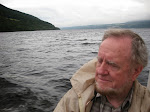The Liberal Party has needed proportional representation for a long time, and its leaders have known it.
The 1979 election was a "wrong-winner" election. Pierre Trudeau's Liberals got 40.1% of the vote, but only 114 MPs. Joe Clark's PCs got only 35.9% of the vote, yet elected 136 MPs and formed the government with support from six Créditiste MPs, giving them a one-seat majority. Trudeau was short-changed only three Ontario seats by the voting system, and only two in Nova Scotia; his big problem was the West. Liberal voters in BC deserved to elect six MPs, but got only one. In Alberta, Liberal voters deserved to elect five MPs but got none. In Saskatchewan they deserved three, but got none; even Ralph Goodale lost his seat. In Manitoba three, not just two.
In November 1979 Pierre Trudeau said he was convinced Canada needs a system of proportional representation if the federal government is going to be able to identify itself with the whole country. He said one of the major problems governing Canada is that each of the three parties' support is not accurately reflected by the seats they hold in Parliament. He noted the Liberals then held only 3 seats west of Ontario even though they regularly won 20 to 30 percent of the votes in that region. And the Conservatives had only three seats in Quebec, even though they took about 20 percent of the votes there in the last election. He said in the future "it will be even more difficult for the federal government to speak in the name of the nation and form national policy" unless this were changed.
Pierre Trudeau's problem with western underrepresentation in 1980 was extreme: he had only two MPs from the four western provinces, both from Manitoba. In 1980 Liberal voters in BC had deserved six MPs, but elected none. In Alberta, they again deserved five and got none. In Saskatchewan, they again deserved three and got none. In Manitoba, four rather than only two. Trudeau would have had sixteen more western MPs with proportional representation.
In its 1980 Speech from the Throne, the newly reelected Liberal government of Pierre Trudeau promised to appoint a committee to study the electoral system; however, none was ever struck because opposition to even modest reforms among Liberal Members of Parliament was intense. (Ironically, René Lévesque had the identical problem as Quebec premier at the same time: after being re-elected in 1980, Lévesque started to implement proportional representation for Quebec, and got part-way down the road when his caucus veto'd it.)
Someone has written that Trudeau said in 1980 that he would introduce legislation for proportional representation if the NDP would co-sponsor it. What he actually offered, if anything, is not known.
Ed Broadbent has written "Shortly following the election Pierre Trudeau asked me to meet with him. The subject of our subsequent discussion was his proposal that I join the cabinet. . . I said to him that I would of course need other members of the NDP to be included. I said, “We will need five or six and a couple of major portfolios.” He looked at me and said, “You’ve got them.”
"Trudeau explained that he planned to introduce in the coming session of Parliament what turned out to be two of the most important and divisive measures in recent political history: the National Energy Program and the repatriation of the constitution combined with a charter of rights. . . he wanted us in the cabinet because . . . we had 26 MPs in the four provinces.
"The failure of the Liberals to obtain seats in Western Canada anywhere proportional to their vote was by no means an isolated incident. I recently looked at the data for the four federal elections that took place since I left politics in 1989 (1993, 1997, 2000, 2004). There is a persistent failure of Western Canadians to get the Liberals they voted for elected. In each of the three provinces (Saskatchewan, Alberta and B.C.), in virtually every election, large numbers voted Liberal but only a handful of Liberals were elected. . . the absence of equitable representation in caucus and cabinet plays a significant role in producing an imbalance in the substance of policy as well as weakness in persuading the public to accept it."
"My point is all regions deserve an electoral system that will ensure impact in Ottawa is equitably distributed. All caucuses deserve a system that ensures representation from all regions proportional to votes cast."
Even Jean Chrétien had some of the same problems in 1993. Liberal voters in BC deserved 10 MPs, not just six. In Alberta seven, not just four. In 1997 Liberal voters in BC again deserved 10 MPs, not just six. In Alberta six, but they got only two. In Saskatchewan four, but they got only one. In 2000 Liberal voters in BC deserved 10 MPs, not just five. In Alberta five, but they got only two. In Saskatchewan three, not just two.
Trudeau's western problem had actually began back in 1972, when BC Liberal voters deserved seven MPs not just four, in Alberta five but got none, in Saskatchewan three but got only one, and in Manitoba four not just two. Even in his 1974 comeback Alberta Liberal voters again deserved five MPs but got none, Saskatchewan four not just three, and Manitoba four not just two.
So for 31 or 38 years Western Liberal voters have needed PR, yet "opposition to even modest reforms among Liberal Members of Parliament" -- elected from Liberal strongholds -- "was intense." Understandable, since those who needed PR (such as Ralph Goodale) were not elected in 1980. But outside their strongholds, why don't more Liberals speak up?
Sunday, February 21, 2010
Subscribe to:
Posts (Atom)
